The topic of online reviews is filled with controversy, but we’re going to put that discomfort to rest by disproving the most common myths and misconceptions about them.
As accountability has evolved on the internet, so has the reliability of online reviews. Where there was once mistrust and fraud, there is now transparency and credibility. But, the stigma of online reviews remains. Starting with the oldest of tall-tales, we’ll uncover ten truths about reviews.
1) It’s best to have all 5-star reviews.
The first of all of the rumors surrounding reviews is that businesses need to have only 5-star reviews. When online reviews first emerged, everyone wanted the highest star rating. This led to some unethical, and eventually illegal, business practices, like purchasing fake reviews.
Despite initial opinions, it’s not good to have only 5-star reviews at your business, especially now. People trust a business with positive reviews, yet too many 5-star reviews raise suspicion. Finding balance is the key, but it needs to come naturally.
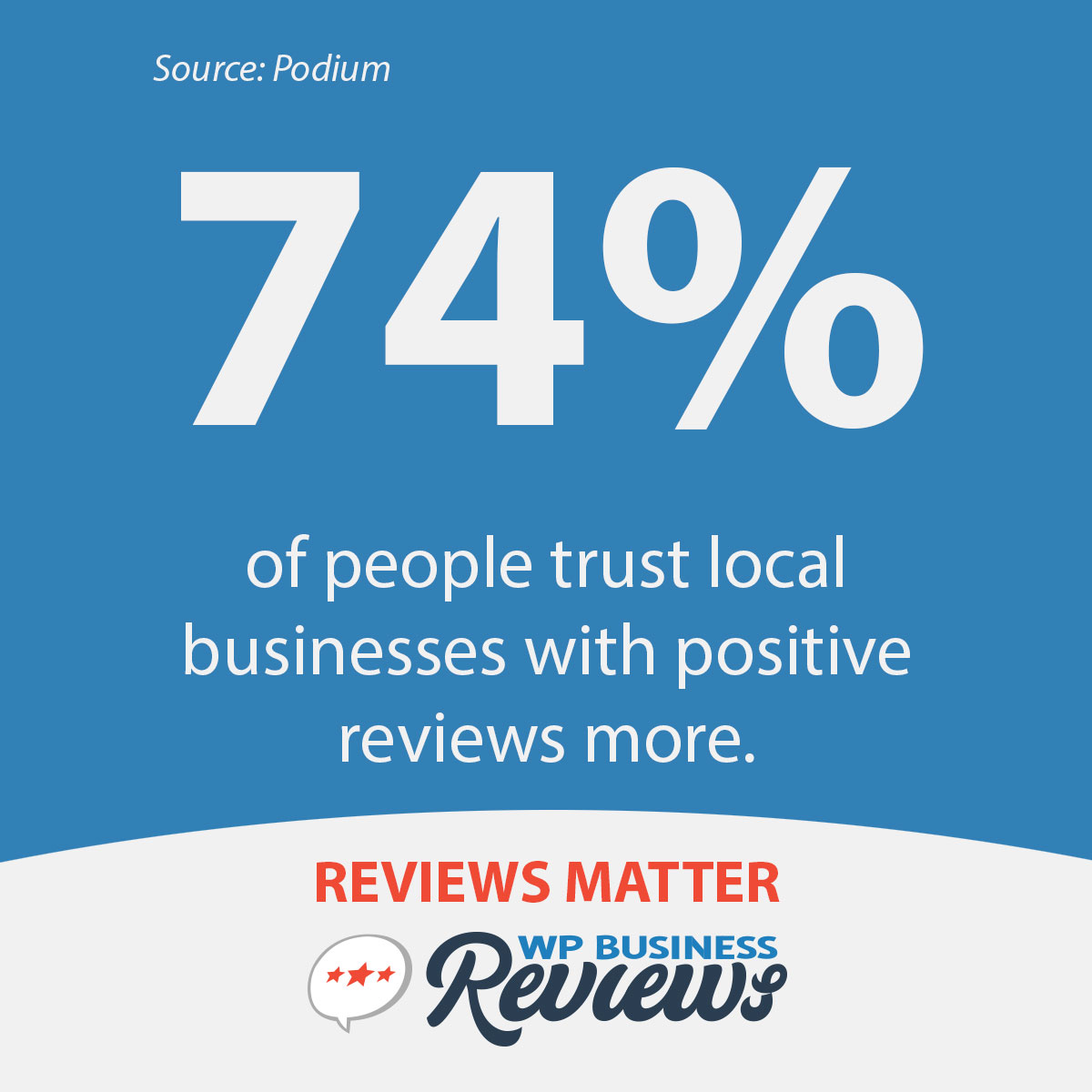
Additionally, too many positive reviews puts you in danger of complacency. Lower reviews give you constructive criticism to work with. Without this type of input, you might think you have nothing to improve. But, in reality, there’s always something you can make better in any business.
Lower reviews don’t always include criticism. Some reviewers leave 4-stars simply to give suggestions for ways to make their experience even better than it was. If you only collect 5-stars and fail to ask for candid feedback, you’ll avoid trying new things and eventually fall behind the competition.
Lastly, some prospective customers or clients want to see how effective your support is. When they see you responding positively and helpfully to really negative reviews, it puts your whole business in a good light. Even extremely negative reviews are not always a bad thing. We’ll talk more about negative reviews later.
2) Only the star rating counts.
Focusing on your star rating also narrows your field of vision and you’ll miss the most important part – the content. The rating is only one piece of an online review. If you focus on only the star rating and forget about what your customer says, you’ll miss those important suggestions and crucial pieces of feedback. Plus, the content of your reviews matters.
There are some platforms that won’t even let you leave a review without adding something about your experience in writing. They do this in order to ensure that reviews are real and that they have valuable information for users on their platform.
Recently there was an incident where a business was flooded with 71 single-star reviews in one day. Not one of the reviews had content written in them. If each had, and they all had something different but related, then the reviews might hold some relevance. But for anyone looking at them, they are clearly fake. Yet, it hurts the overall average rating of the business, which is another issue entirely and we’ll cover that topic in a later post.
Incidents like these happen, but in general, it won’t hurt the business in the long-run. The truth is that people trust the content over the star rating. What people say about your business in their reviews matters the most.
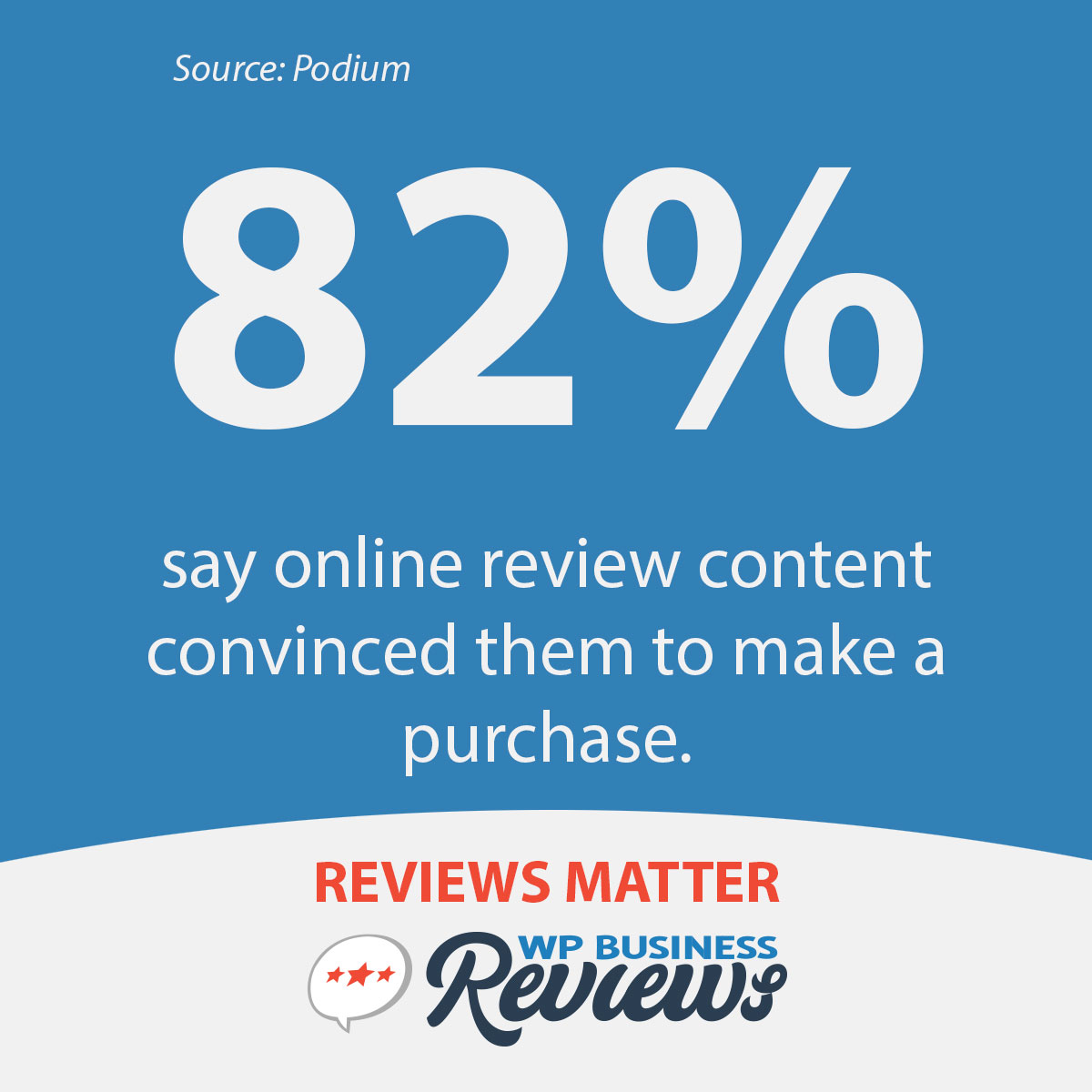
In addition to how consumers view your reviews, search engines also pay more attention to what’s written. Your local SEO gets a boost when you include online reviews because you’re connecting key terms to your brand, tethering yourself to the location, providing social proof, and showing positive sentiment.
3) Online reviews are hard to get from customers.
Now that you know the content matters, how do you get customers to leave reviews? Many assume it’s hard to do, but, it’s not. Most people will leave a review when they’re asked.
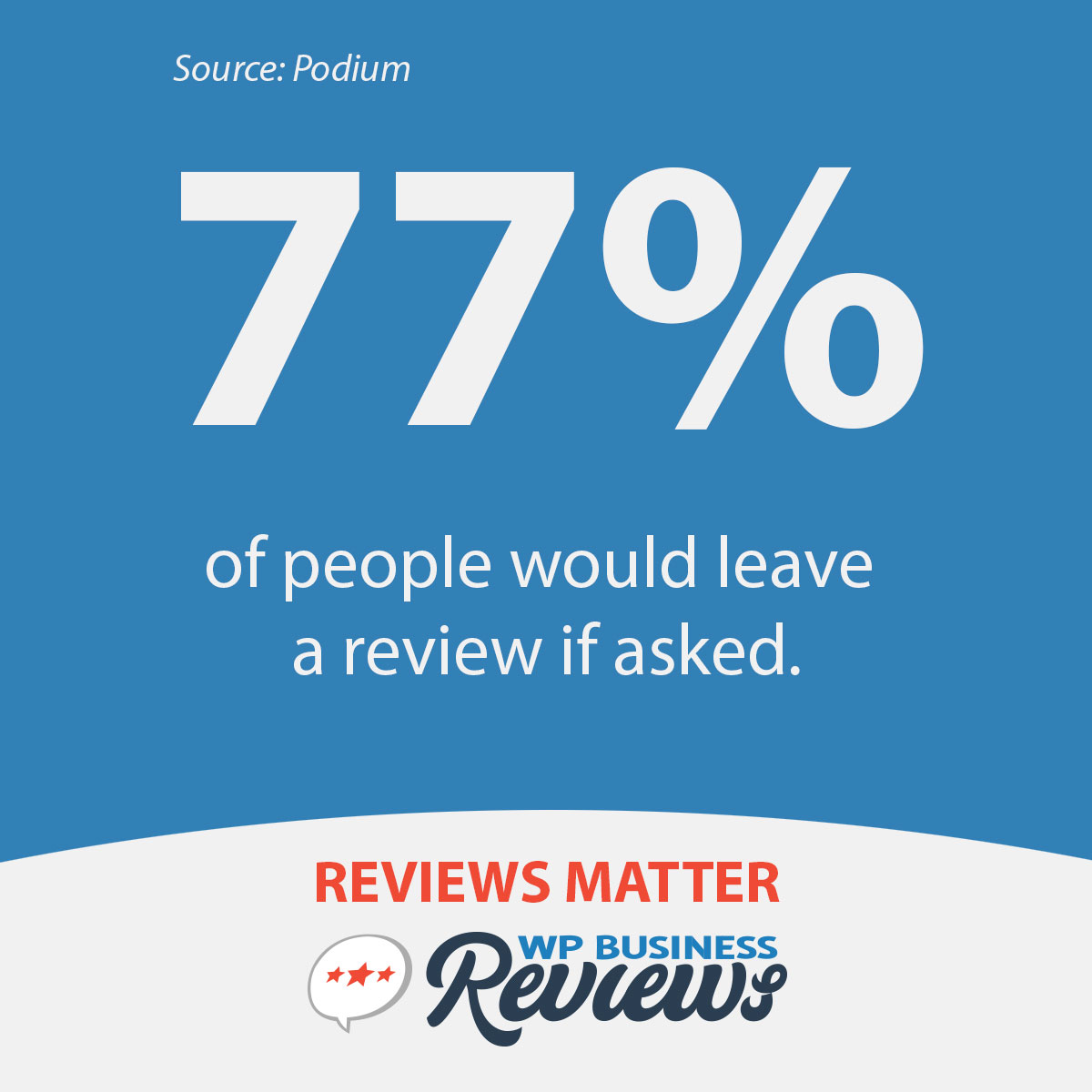
Getting more reviews is as simple as asking. But, also there are caveats to asking customers for reviews. It should be done in such a way that it doesn’t feel intrusive or demanding. Asking too soon or when the customer has an unresolved issue will result in less than favorable feedback. In order to avoid this, we’ve provided some email templates for various types of businesses.
Using the provided email templates ensures that your customers have been thoroughly helped and are happy with their experiences before they leave you a review. They’re thankful by the time you ask, which makes them more likely to leave a review with great content. It also makes sure that your ask isn’t irritating to the customer and feels like part of the natural experience.
In addition to what you do for your own business, reviews platforms provide incentives for people to leave reviews. For example, TripAdvisor has gamified the review writing experience with TripCollective. Other platforms have similar programs. This makes people more likely to leave a review simply because it’s already a part of their routine.
4) Only angry people write reviews.
As previously stated, all you need to do to get a review from a happy customer is ask. If you don’t though, angry people are still not the only ones to write reviews.
In general, people more naturally leave reviews when they have extraordinary experiences. Granted, it is much harder to give an outstanding positive experience than a negative one. It’s even harder if your customer came in expecting a bad experience. But if you develop positive habits to get better reviews, you can capture more customers who had great experiences.
Grow Your Business
We strongly believe that reviews can help you grow your business. Subscribe to our newsletter for additional advice on using your reviews and more.

You’re not the only one in control of enticing satisfied customers to leave reviews. Review platforms also provide incentives to people who leave more reviews. One such program is Google Local Guides, where Google gives Local Guides points based on their activity.
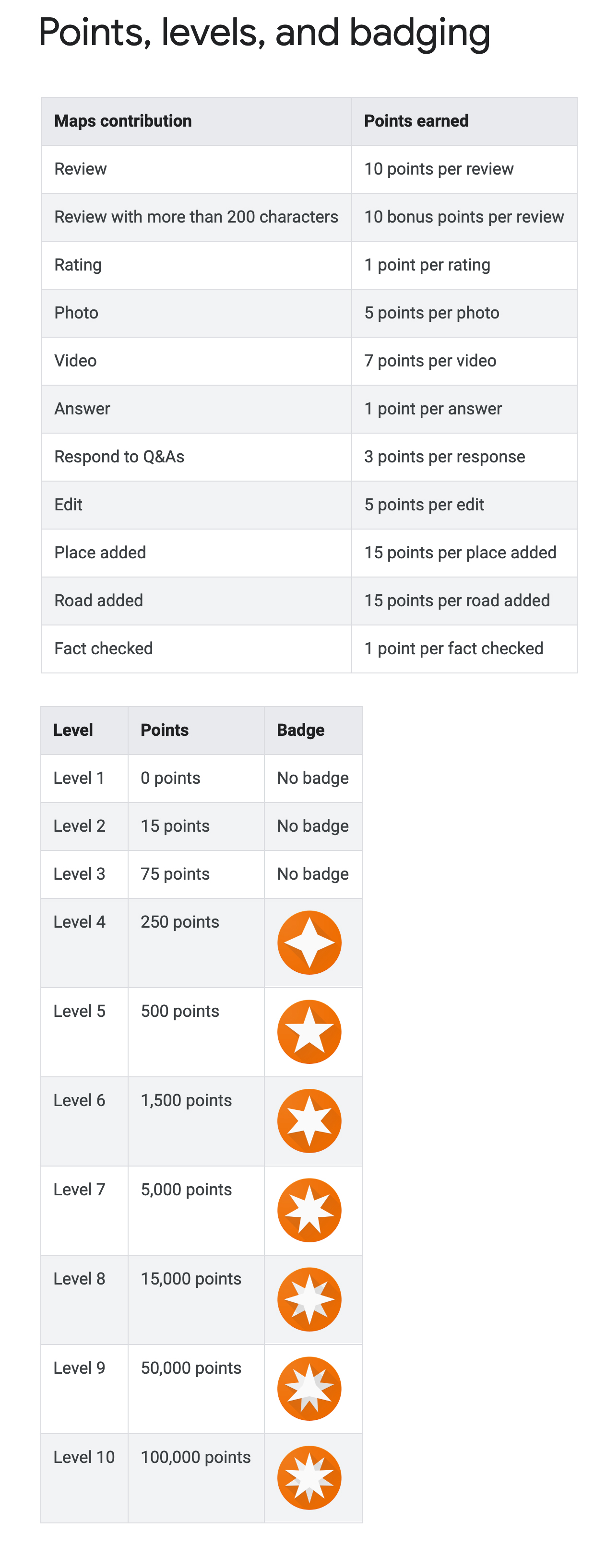
These points add up to increase the Guide’s level. And, at different levels, local guides get better and better perks.

5) Most reviews are fake.
Most reviews are actually real experiences. There have been times that fake reviews emerged as an issue, but that’s not really the case as much anymore. Although fake reviews do still exist, they are much further and fewer between when it comes to local business reviews. All reviews platforms are cracking down. Programs, like Google Local Guides, have helped to prevent the prevalence of fake reviews. While companies, like Amazon and Yelp, have filed lawsuits against those selling and posting fake reviews.
The issue of fake reviews stems from businesses purchasing them, the competition trying to get ahead, and enraged customers or former employees seeking revenge. If your business decides to purchase reviews, you not only are lying to your potential customers, but you’re also breaking the law. It’s fraudulent. If your competitor practices some unethical behavior to try to make your business look bad, it just means you are doing something right. Don’t retaliate with negative reviews on their business pages. Those disgruntled employees or customers can usually be fought by reporting the review to the platform. Otherwise, such reviews are actually easy to identify.
Even if you do find that your business attracts fake negative reviews, usually consumers are smart enough to put them in context. The content of the review is still more important than the star rating.
6) People don’t trust reviews.
Due to the past trend of fake reviews, another extremely common misconception is that people don’t actually trust online reviews. The opposite is actually true. Opinions on reviews vary, mainly by generation. However, most people do trust reviews as much as they trust a recommendation from their friends.
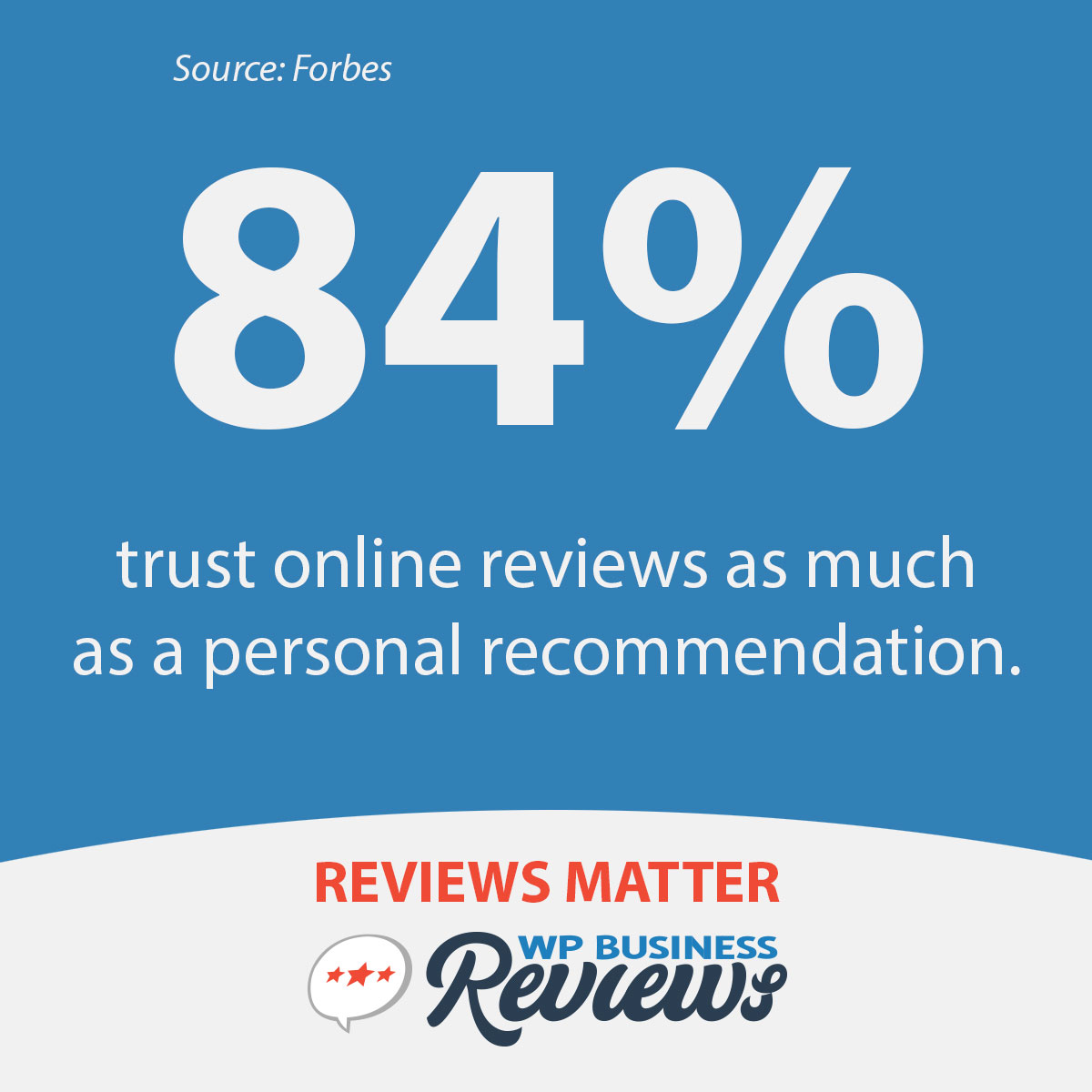
It’s easier and easier to tell which posts are fake, bot generated, or unfair. Because of this, reviews are gaining more credibility with people. Even negative reviews can be turned into a positive beacon to potential customers if handled correctly.
7) Negative reviews are always bad.
Negative reviews present you with an opportunity to turn a bad situation into a good one. Or, if that situation isn’t salvageable, negative reviews teach you lessons for the future. If your business ignores reviews or dismisses negativity, you’re missing out.
Reviews give you insider insight from a customer’s perspective. If they left a negative review, maybe they pointed out a glaring flaw previously overlooked. Maybe they misunderstood what they should expect before visiting and it made their experience worse. Whatever the reason is, you should take the opportunity to learn from it.
Responding to all your reviews publicly is also a crucial detail. A public response shows others that you do care when someone isn’t satisfied and that you’re doing something about it. Responding to all your reviews, the positive ones too, tells everyone you’re really paying attention.
8) When replying to a negative review, you need to prove you were right.
Not every response to a negative review will show that your business was in the right. In fact, it’s off-putting when businesses are adamant that the customer was wrong. In some cases it works, like a few of these funny responses to negative reviews, but generally, it doesn’t.
Even if the customer is clearly wrong, your job is to let them know their opinion was heard and you’re not dismissing it. Others looking at this situation see that you’re a reasonable person, your business is paying attention, and they’re more likely to visit. On the other hand, if your response essentially says, “You’re wrong,” then people will be deterred by the conversation.
9) Reviews don’t help a business.
How you manage your reviews will determine how useful they are for your business. Because of the previous eight misconceptions mixed with bad marketing tactics and business practices, many believe that reviews do not help. But they do. It’s a matter of taking advantage of the benefits that online reviews offer.
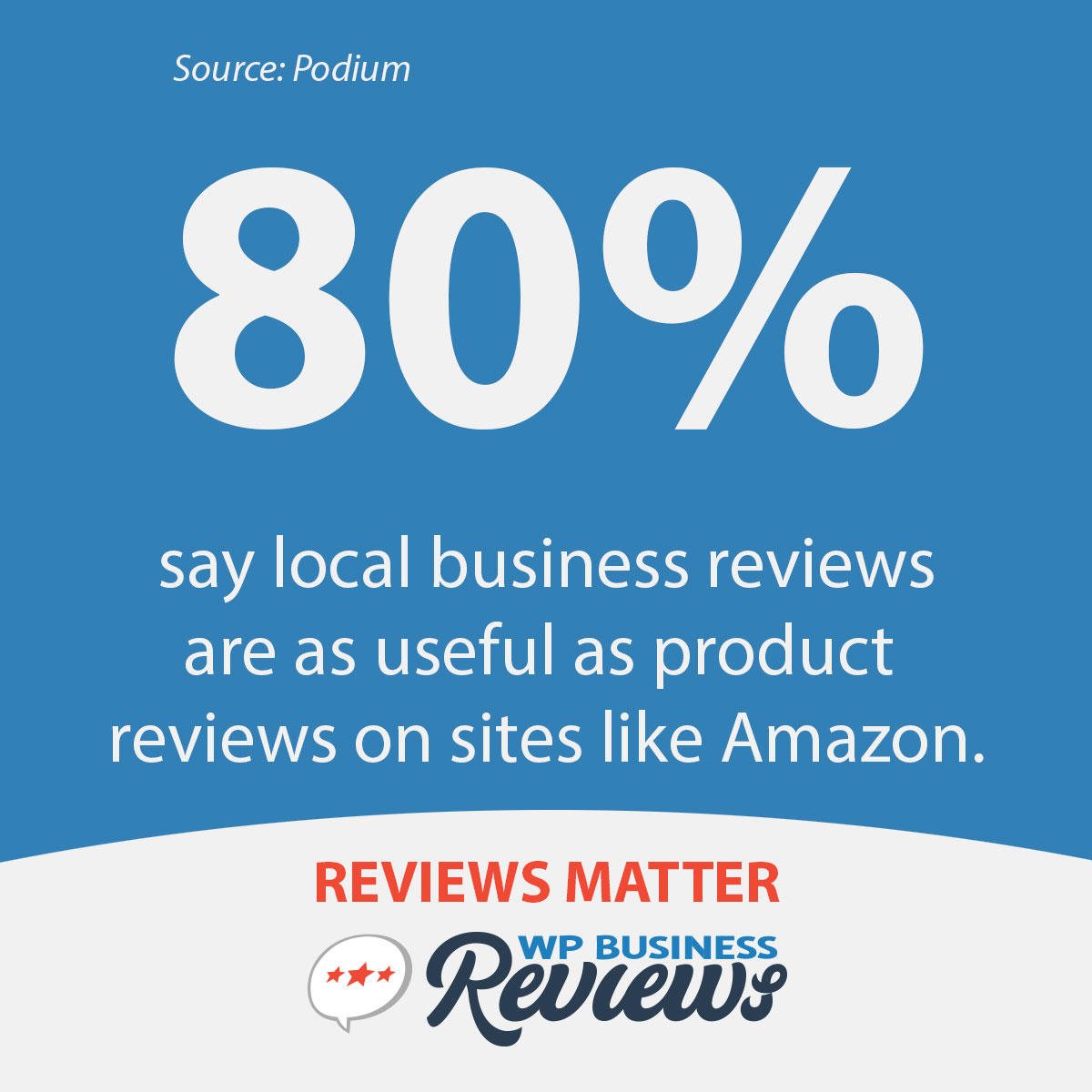
If your reviews speak loudly about how great your customer experience is and they’re easy to find, then reviews will help your business. Customer experiences are what differentiate you from your competitor. Small businesses, especially, need online reviews to compete with bigger businesses.
10) There’s no need to pay attention to reviews.
So you’ve conceded that reviews matter, but you still don’t think you need to pay attention to them. Our last and final myth to bust is that managing reviews isn’t required. It is.
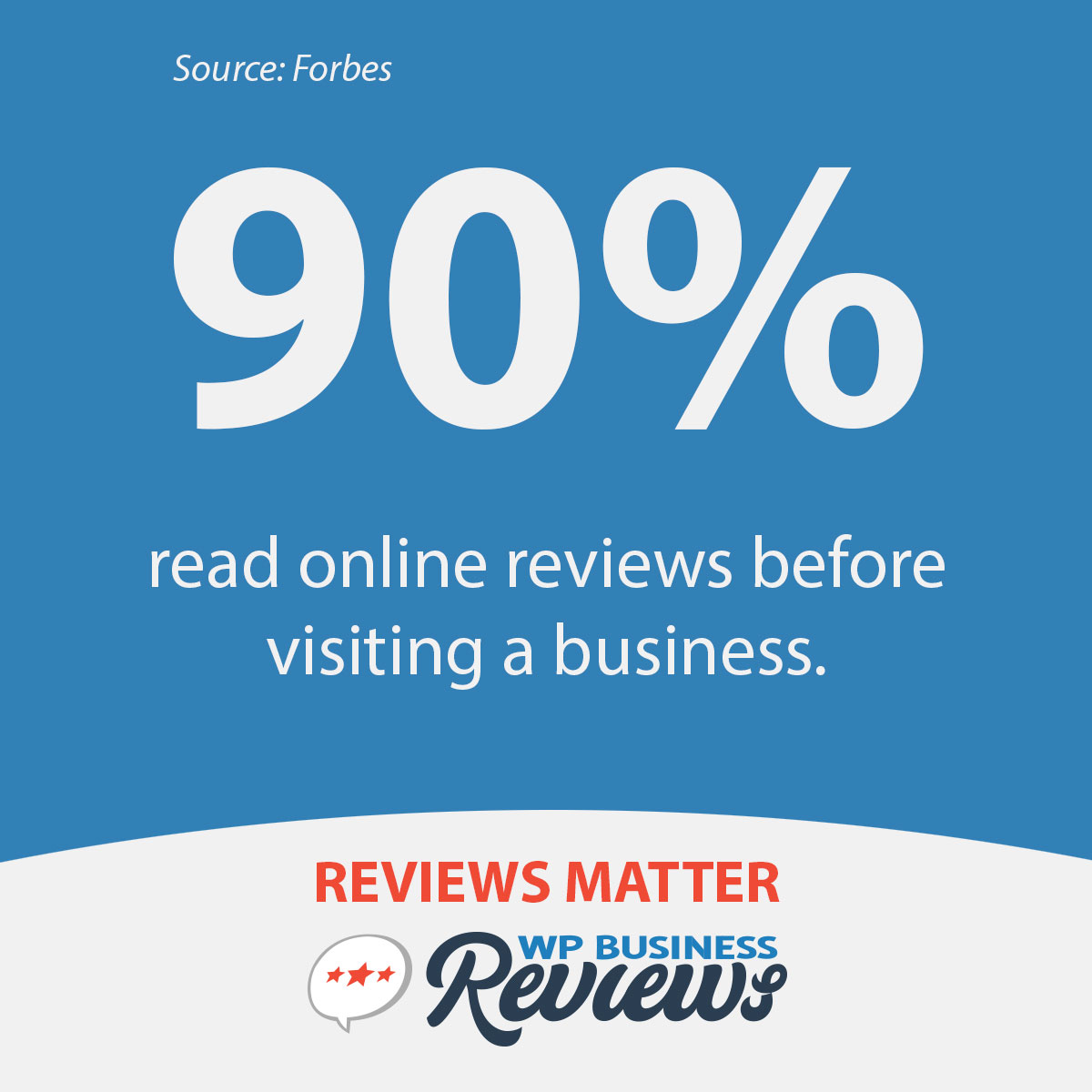
When people look at these reviews before they visit your store, they need to see that your business cares through your responses. If people see that you respond to and are excited by positive reviews, they will be more compelled to give one when they leave, too.
Potential customers should also find the best reviews easiest, and the only way to do that is to put your reviews on your website.
Use Your Business Reviews
Reviews matter. Your reviews can help you to grow your business. It’s a free marketing resource with unlimited value. Take advantage of it and tell us how you use your reviews in the comments.

